Financial
Roadmap
A clear, personalised path to your financial goals.

What better time of year to think about giving, than Christmas?
At First Financial, we know that for many of our clients giving back to their community is an important part of their lives that they find incredibly rewarding.
It gives us great joy to know that our work as financial advisers goes some way to helping our clients act on their passion to give to others.
To us, these acts of everyday philanthropy should be celebrated. So we’ve decided to celebrate the gift of giving with this guide on how to become an everyday philanthropist.
If you’re asked to name a philanthropist, what’s the first name that pops into your head? Bill Gates, Warren Buffet or maybe someone homegrown like Twiggy Forrester? Whoever it is, chances are they’re a billionaire.
But philanthropy is not just the realm of the super rich. The literal definition is ‘the love of humanity’.
Philanthropy is simply the desire to improve the wellbeing of others and that’s something every one of us can do.
Philanthropy is planned and structured giving and it can come in many forms – not all of them monetary.
You can choose to give your expertise, your time and service, your voice and influence and of course your money. Becoming a philanthropist is as easy as making a plan about how you want to give.
It’s better to give than to receive, so the saying goes.
And actually, there might just be some medical evidence to back that up.
Giving provides us with a sense of connectedness and purpose that has been linked to reducing stress and having a positive impact on our mental health.
This can lead to physical benefits as well, including the possibility of lowering blood pressure and even living longer.
Philanthropists are often motivated to give because they have identified a particular problem they’d like to see solved.
Philanthropists not only want to give back, they want to facilitate change and make a difference.
Finding a cause that you are passionate about can help sustain your ongoing commitment.
Working on an issue that resonates with you personally or correlates with your professional life can be beneficial to both sides.
First Financial clients Karen and Gary have a shared passion for animals and both volunteer regularly at the Healesville Sanctuary.
While helping the animals and raising awareness is their focus, they also both enjoy working alongside other volunteers.
“There are volunteers from all walks of life,” says Karen.
“Some are involved in the animal hospital, others guide visitors around the Sanctuary and a group also assists in school education programs.
There are retired people but also people who are employed elsewhere and there’s a group of younger volunteers, especially university students.”
Giving to an organisation that is aligned to your values can be rewarding and satisfying as it provides you with a very grassroots way of giving.
The important thing is to set your own boundaries when it comes to time and financial commitments.
Collective giving is coming together as a group to jointly fund social change.
While the concept is not new, social media has created new avenues for communities to connect, and this type of philanthropy is growing in popularity.
In addition to the benefits of meeting like-minded people, the ability to scale up the impact of each individual’s contribution can be incredibly powerful and rewarding.
You can start small on a grass roots level in your own community. Or if you are already part of an organisation, look for other organisations with a similar mission that you can partner with.
The Cold Frog Challenge that our clients Jenny and Ray were a part of is an excellent example of effective collective giving.
For Jenny and Ray, the most important part of The Cold Frog Challenge was raising awareness about the plight of Sudanese refugees struggling with homelessness in their local community.
The couple were blown away by the amount of support they received.
“It was great,” says Ray.
“We just sent out an email to our friends and we were amazed by the support we got. It’s nice to see we’ve got friends who, when asked to support people in need, do respond. So, we give thanks to all the people who supported us through this exercise.”
Collective funding events are a fantastic introduction to philanthropy.
These live, group events bring together various charitable organisations and put them in the room with everyday people who are keen to hear their stories and donate.
Similar to online crowdfunding, at these events you can pledge whatever amount you are comfortable with.
Because it is happening in real time you can see the sum of everybody’s pledges increase, which can be both exciting and rewarding.
Collective funding events are intimate and highly interactive. They are designed to be fun, informative and have a lasting impact for both the givers and the receivers.
A social enterprise is a commercially sustainable business that is focused on solving social, cultural, economic or environmental problems.
Social enterprises are often small business set up by socially conscious entrepreneurs who use the power of the marketplace to drive change. They can be any type of business from a community bakery, food co-op or a micro-loan enterprise.
As a business model, social enterprises are becoming increasingly popular. This could be an option to consider if you have entrepreneurial flair and have a passion to see change in your community.
Workplace giving is an initiative designed to create a joint relationship between employers, employees and charities.
The aim is to provide employees with a simple way to regularly donate to charities or organisations that are entitled to receive tax deductible donations.
Individual employees can contribute a small pre-tax donation directly from their salary and receive the tax benefit straight away, rather than waiting until the end of financial year. Employers can also offer to match employee donations.
Many companies encourage giving by allowing staff to volunteer, skill-share and offer in-kind support through employee engagement initiatives.
At First Financial, our team loves giving back to the community by volunteering at Foodbank Victoria and participating in the Cancer Council’s Biggest Morning Tea.
A few years ago we worked giving into our annual Christmas party by building a mini-golf course from perishable foods that we then donated to Willing Older Workers, a local charity that helps elderly unemployed people with practical support.
This was a fun way to get everyone in the First Financial office involved in the spirit of giving.
We’re all familiar with giving a one-off or an on-going charity donation, but if you are considering giving a larger amount you may want to consider a philanthropic structure to ensure your money is effectively distributed.
A financial adviser can help you structure your giving as part of your estate planning or as an ongoing commitment to ensure you meet your tax and legal obligations.
Here are some of the structures you may use as an individual:
If you receive a pension or any government benefit and decide to give money or assets there are significant financial considerations you should take into account. It’s important to note that this also applies to gifts to family and friends.
In the government context gifting is defined as giving away assets, or transferring them for less than their market value. For example if you sell your house to your son for $600,000 when it is valued at $700,00, the $100,000 difference will be considered a gift.
The gifting free amount is the most you can give without affecting your government payments, including the pension.
The amount for a single person or a couple’s combined is:
If you exceed these amounts the asset value over the gifting free amount will count in your assets test as well as having deeming applied and included in your income test for five years from the gifting date.
As financial advisers we wouldn’t be doing our job if we didn’t include a few points on tax…
You can claim a tax deduction on gifts or donations if the organisation has Deductible Gift Recipient (DGR) status.
Here are also a few other points to remember:
From everyone at First Financial we wish you all a safe and merry Christmas.
If you would like more information on how to incorporate giving into your financial goals please contact us today. Read more Financial Planning articles.
Every client journey begins with a conversation. We look closely at where you are now, what matters to you, and what’s possible. Then we structure our advice to match.
A clear, personalised path to your financial goals.
Proactive strategies to maximise your tax savings.
Tailored plans aligned with your goals and risk profile.
Regular guidance to keep your plan on track.
Retired business owner
After decades of running a successful pharmacy, John sought financial guidance to simplify decision-making and support long-term planning.
“I feel genuinely supported by First Financial. I can ask anything, and there’s no pressure, just clear advice and real care. The money’s growing, I’m not stressed about it, and I feel completely at ease for the first time. I don’t miss work, but I’d miss the support I get from First Financial.”
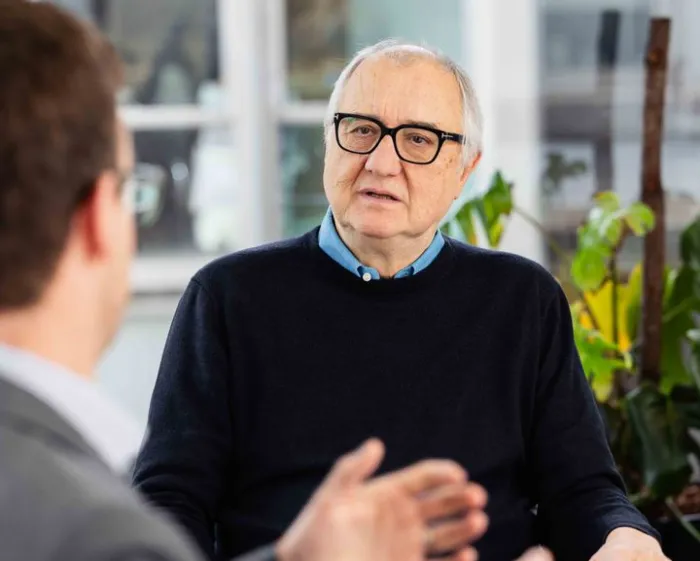
Retired
Jan's husband managed the finances until entering aged care. Jan gradually stepped into the financial picture with First Financial’s support.
“The money just comes in. I don’t have to think about it. And I know they’re always there. They’ve always been there in the background, just quietly making things work.”

Retired and semi-retired
Referred by friends who were helped through aged care, Craig sought secure financial guidance after inheriting funds.
“We feel very secure with First Financial, the income just comes in, and we know everything is being looked after. It’s not just safe, it’s smart. We’ve recommended them to others because we genuinely believe in the team.”
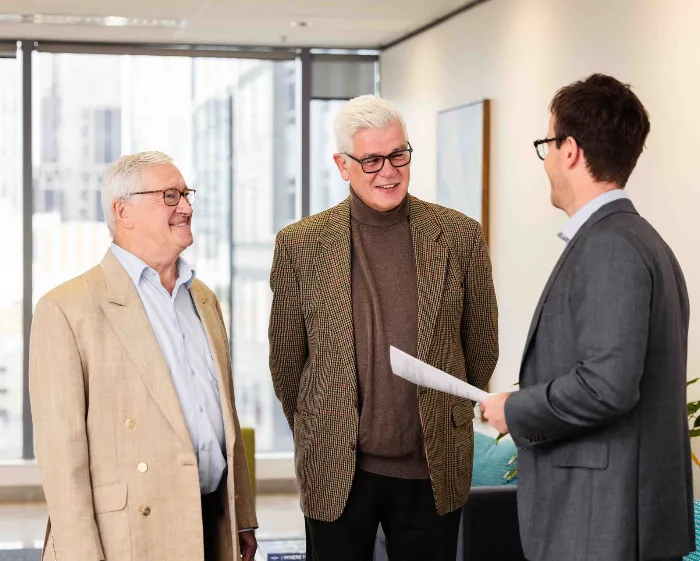
Newly retired
As retirement neared, Larry and Virginia were ready to enjoy travel, family, and freedom, without uncertainty. A friend recommended First Financial, and from the first meeting, they had a clear plan, a safety net, and people they trusted.
“We’ve travelled the world, Europe, Sri Lanka, Vietnam, without once stressing about the money. They made everything feel simple and gave us the confidence to live well. We feel secure because we know exactly where we stand, and that peace of mind means everything.”

Early retirement and working professional
When Tim received an overseas medical settlement, he and Adam had just 14 days left in a 90-day window. They needed clear guidance, fast. A referral led them to First Financial.
“We’re in totally different life stages, but First Financial built a strategy that supports us both. From urgent legal steps to ethical investing, they handled every detail with calm, care, and real expertise. It’s financial freedom without compromise, and we couldn’t have done it without them.”

Retired widow
Lyn stepped into financial management for the first time after her husband's passing. With patience and care, First Financial supported her through grief, learning, and empowerment.
“After my husband passed, I was completely unsure where to start. First Financial gave me the space to learn, to ask questions, to grow confident. They drew a diagram that I still have. And now, I sleep well at night knowing I’ve got someone in my corner.”


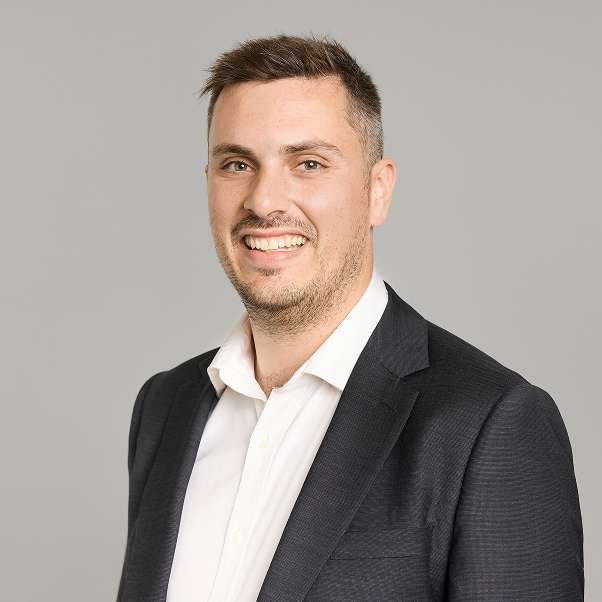
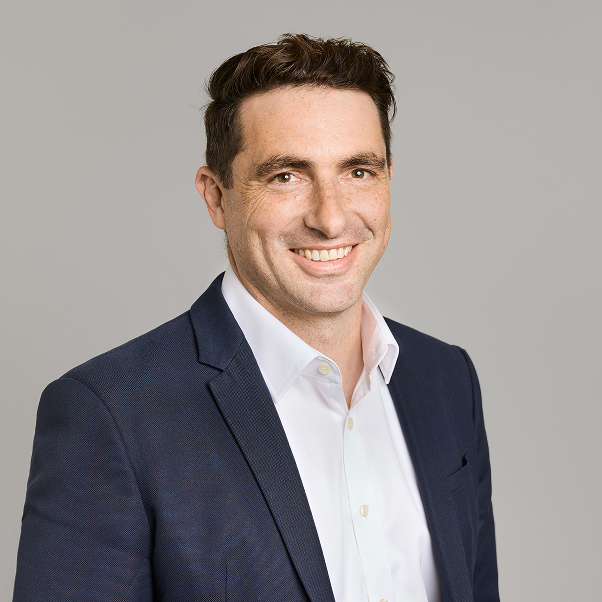
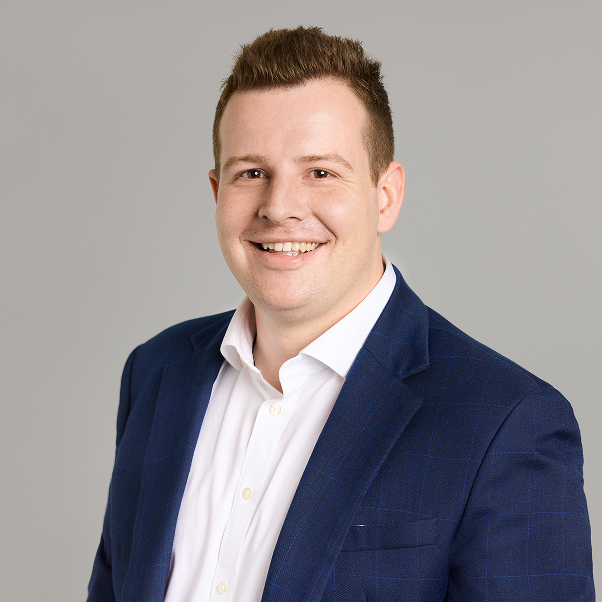
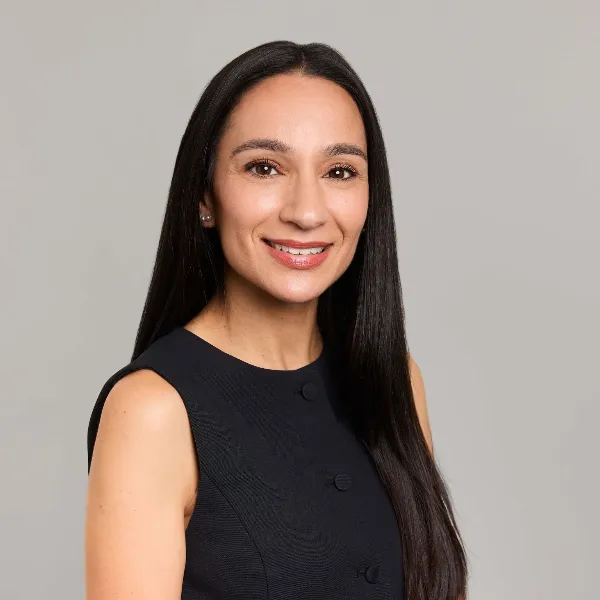

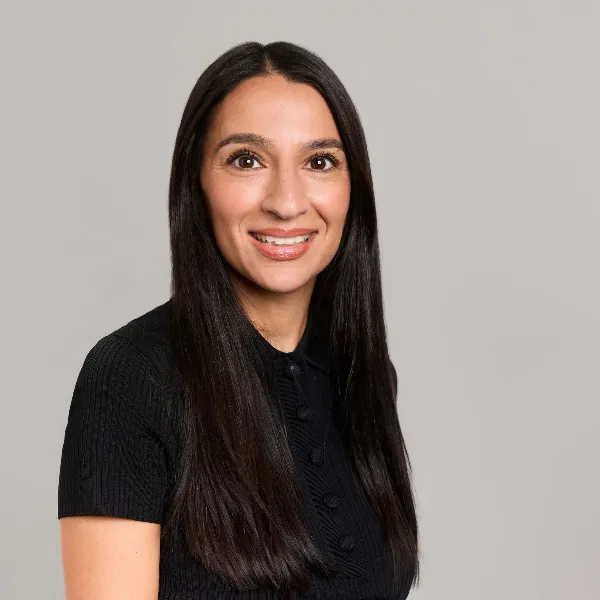
You can use the form below to make a general or initial enquiry.
You can also book a 15-minute call with an adviser by clicking the blue button below.
You can use the form on the right to make a general or initial enquiry.
You can also book a 15-minute call with an adviser by clicking the blue button below.
Fill in your details and briefly let us know how we can help.
We’ll reach out to schedule a time that suits you.
Enjoy an obligation-free initial meeting to discuss your goals and explore how we can guide you toward financial confidence.
Let’s start the conversation.
We look forward to hearing from you!
Level 9, 90 Collins Street,
Melbourne, VIC, 3000
Office Hours
Mon – Fri | 9:00 am – 5:00 pm